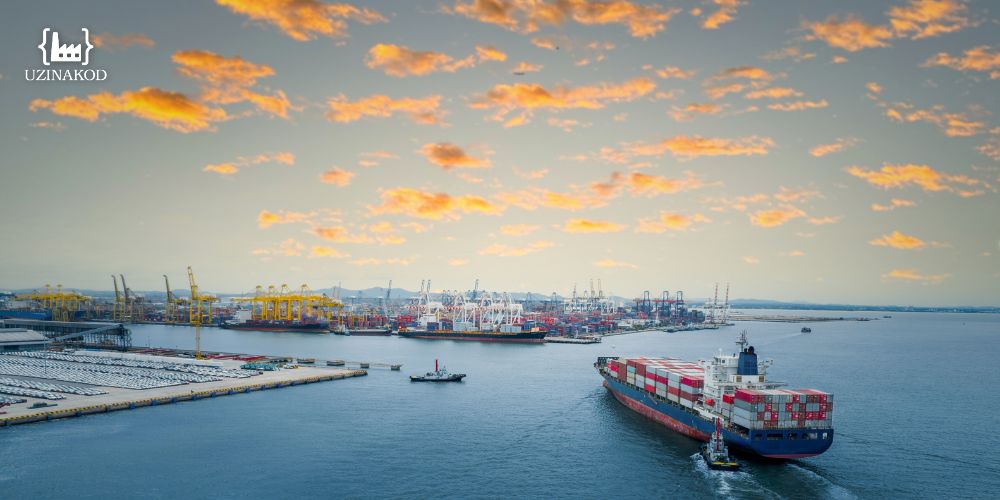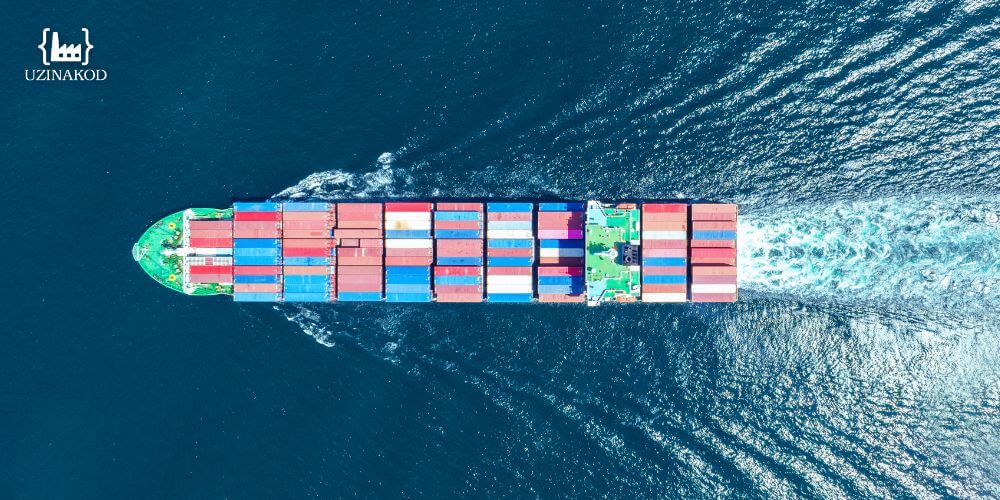The ongoing revolution of Industry 4.0 and Internet of Things (IoT) is reshaping various industries, and the maritime sector is no exception. These transformative technologies are introducing a fresh perspective to the management of maritime operations, enhancing the intelligence and efficiency of ships.
Transitioning to a ship fleet benefitting from the advantages of Industry 4.0 and IoT not only promises better efficiency but also opens the door to improvements in safety, sustainability, and profit. What does the ideal fleet look like in this tech-driven context? Our experts are diving into this question, introducing you to the exciting possibilities of a connected maritime future.

Optimizing Maritime Operations with IoT
Internet of Things (IoT), as we remember, enables the connection of physical objects to the Internet, presenting new opportunities in the maritime sector. This connectivity allows direct links to machines and Programmable Logic Controllers (PLCs) aboard ships. PLCs are crucial in industrial automation as they are electronic systems created to precisely control mechanical processes.
This connection facilitates the real-time collection of valuable data on ship subsystems, providing essential insights for efficient machinery monitoring, proactive maintenance planning and optimization of maritime operations. In an ideal fleet, each ship would transform into an intelligent entity able to share valuable information to streamline operations, cut costs, and reinforce safety.
For example, a ship detecting an anomaly in the operation of one of its engines could send an alert to the crew or to the control center on land, enabling rapid intervention and avoiding a major breakdown. Data collected in real time could also help anticipate fuel requirements, optimize routes, or forecast weather conditions. All of which guarantees optimal, safer navigation!
Exchanging route data with information on dock availability and capacity could reduce waiting times and improve the energy consumption of intelligent ships. For example, a ship could be equipped to adjust its speed in response to delays in port operations.
At Uzinakod, we have worked on a solution to optimize ship movement planning with our client, Canada Steamship Lines (CSL). The custom platform enhances operational agility, allowing real-time simulation and execution of diverse assignment scenarios. This unique capability now positions CSL with a significant competitive advantage, as highlighted by our partner Louis-Pierre in this video (only available in French).

A Vast Sea of Data with Industry 4.0
Industry 4.0, also known as the fourth industrial revolution, intensifies this transformation and marks a turning point in the modernization of maritime transportation. The incorporation of on-board data storage solutions and computing power enables real-time data collection and local report generation. This innovation provides constant monitoring and increased crew responsiveness to emerging challenges and potential problems.
In an ideal Industry 4.0-inspired fleet, each ship would be comparable to a small data center. Equipped with the ability to process and analyze data continuously, these ships would be able to make informed, agile decisions. For example, using real-time data on weather and sea conditions would enable them to adjust their route. This ability to adapt not only improves the trip’s safety by avoiding high-risk areas like turbulence, but it also plays a crucial role in optimizing the efficiency of sea routes.
Exploring emerging trends reveals a new perspective that could revolutionize the sector: full ship automation. This evolution would offer unprecedented operational efficiency. However, the total elimination of humans on board poses significant challenges in terms of safety, regulation, and social acceptance. Consequently, the future is likely to witness the rise of progressively autonomous ships, but the human presence on board will remain essential. In the coming years, the role of the crew is expected to evolve, with a greater emphasis on the supervision and management of automated systems, adding an extra layer of safety and efficiency.

Smart Sailing with AI and BI
When the ships reach port, all the data collected can be transferred to the Cloud for in-depth analysis. This is where technologies such as artificial intelligence (AI) and business intelligence (BI) come into action and play an important role. These tools excel in transforming extensive datasets into valuable, actionable insights. This includes the production of detailed operating reports, using machine learning to anticipate maintenance needs or optimize navigation routes.
In an ideal fleet, every ship would have the ability to learn from past experiences and anticipate issues before they occur. For example, by analyzing past maintenance data, artificial intelligence could forecast the potential failure of a specific machine and recommend predictive maintenance to avoid problems. Similarly, by analyzing navigation data, AI could suggest more efficient or safer routes.
Yet, before realizing the vision of an ideally optimized fleet, our experts are firm: there are many compliance challenges to overcome! International maritime standards are exceptionally strict and constantly evolving, imposing rigorous criteria in terms of safety, environmental protection and working conditions. As you can see, the integration of new technologies must navigate the balance between innovation and ensuring secure operations.
Optimize Your Fleet with Our Industry 4.0 Experts
Industry 4.0, combined with the integration of IoT, AI and BI, signals an era in which ships have the potential to become truly intelligent entities. These technological advances hold the promise of improved maritime operations, leading to a significant reduction in costs and a clear advance in safety.
Needless to say, an exciting future is just around the corner. By integrating these technologies, ships would no longer be limited to sailing along precise, predefined routes, but would learn and evolve with each journey, adapting and upgrading to meet future challenges. Adopting these technologies is not just a question of progress or technical achievement, but also represents a commitment to a maritime future that is more sustainable and better adapted to the changing needs of our society.
Ready to experience smoother sailing? Contact our experts to transform your fleet today.




